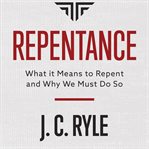Nonfiction
eAudiobook
Details
PUBLISHED
Made available through hoopla
EDITION
DESCRIPTION
1 online resource (1 audio file (1hr., 20 min.)) : digital
ISBN/ISSN
LANGUAGE
NOTES
Read by Saethon Williams
Except you repent, you will all likewise perish. - Luke 13:5 It is indifference that leaves people alone and allows them to go their own way. It is love, tender love, that warns them and raises the cry of alarm. The cry of "Fire! Fire!" at midnight might sometimes rudely, harshly, and unpleasantly startle a person out of his sleep, but who would complain if that cry was the means of saving his life? The words Except you repent, you will all likewise perish might at first seem stern and severe, but they are words of love, and they could be the means of delivering precious souls from hell. 1. The nature of repentance: What is it? 2. The necessity of repentance: Why is repentance needful? 3. The encouragements to repentance: What is there to lead people to repent? About the Author John Charles Ryle (1816-1900) graduated from Eton and Oxford and then pursued a career in politics, but due to lack of funds, he entered the clergy of the Church of England. He was a contemporary of Spurgeon, Moody, Mueller, and Taylor and read the great theologians like Wesley, Bunyan, Knox, Calvin, and Luther. These all influenced Ryle's understanding and theology. Ryle began his writing career with a tract following the Great Yarmouth suspension bridge tragedy, where more than a hundred people drowned. He gained a reputation for straightforward preaching and evangelism. He travelled, preached, and wrote more than 300 pamphlets, tracts, and books, including Expository Thoughts on the Gospels, Principles for Churchmen, and Christian Leaders of the Eighteenth Century. Ryle used the royalties from his writing to pay his father's debts, but he also felt indebted to that ruin for changing the direction of his life. He was recommended by Prime Minister Benjamin Disraeli to be Bishop of Liverpool where he ended his career in 1900
Mode of access: World Wide Web







